WSU Applebaum Pathologists’ Assistant Program Director Lou Kramer guides students down the path she paved
While many of us were indulging in turkey and pumpkin pie last Thanksgiving, VéraLúcia “Lou” Mendes-Kramer had something very different on her plate.
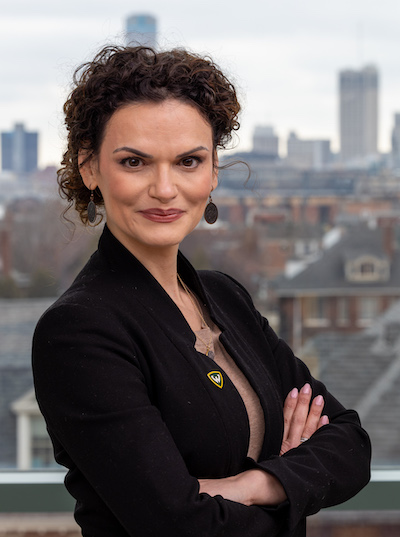
Instead of spending her long weekend away from campus feasting and relaxing, Kramer flew to Atlanta for several days of work at a Fulton County Medical Examiner’s Office autopsy table.
For years, the Wayne State University Eugene Applebaum College of Pharmacy and Health Sciences Pathologists’ Assistant program director and assistant clinical professor has left home during university breaks to lend an extra pair of expert hands as a locum — or skilled substitute — in understaffed medical examiner’s offices across the country.
“There is a tremendous shortage of forensic pathologists in the U.S. but the workload hasn’t slowed at all, so medical examiner’s offices hire locums to keep up,” said Kramer.
She noted that the early days of the pandemic increased her locum placements, both because Wayne State’s remote classrooms meant she could teach from anywhere in the world and because prior to vaccine development, COVID-19 resulted in a record number of deaths.
“A pathologists’ assistant works under the direction and supervision of a physician and doesn’t make decisions about diagnosis or manner of death,” Kramer said, adding that the great majority of pathologists’ assistants work in hospitals and labs, analyzing tissue and organs from surgeries and biopsies. “In the forensic setting, our postmortem examinations can help pathologists make the right call to ease their workload — and they need our assistance now more than ever.”
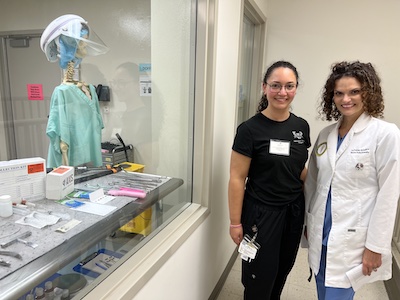
Indeed, as Kramer worked her way through Thanksgiving, Time magazine published a story headlined, “Experts fear a shortage of forensic pathologists will leave deaths unexplained.” Time reported that in the United States, roughly 750 forensic pathologists — medical doctors who perform autopsies to examine sudden, unexpected or violent deaths — are working full-time. Unfortunately, about twice as many are needed to cope with the rising caseloads attributed to increases in deaths from drug overdoses, violent crime and COVID-19.
It’s clear that this country’s forensic pathologist shortage must be addressed, and Kramer is paving the way to a solution.
A cut above
Kramer’s road to WSU Applebaum began in her home country of Portugal, where she graduated from high school at age 16 and entered the competitive pool of students vying for admission to the government-run university system. “If 20 spots are open in biology, you might have 2,000 people applying, so only the cream of the crop gets in each year,” she explained.
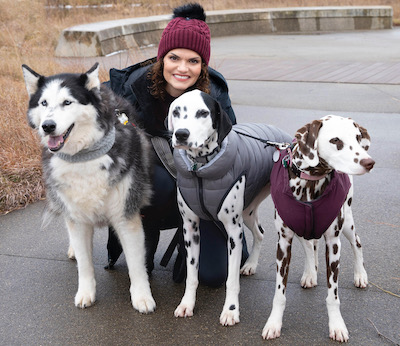
Meanwhile, the Portuguese Air Force had recently begun accepting women into its ranks for the very first time. “I felt called to defend my country, but they didn’t really know how to integrate girls into active duty yet, so I completed basic training and went back home,” Kramer said, adding, “It was the best thing that could have happened to me — learning the professionalism that comes from following orders, no matter how hard.”
At this time, Kramer was fluent in four languages and conversational in English, which she’d begun learning in 10th grade. So after basic training she jumped on an opportunity to work as an au pair in the U.S., where she could earn money and practice the language while waiting for her college decision. Ultimately, she was accepted into the Portuguese university system, but by then had fallen in love with the American who would eventually become her husband.
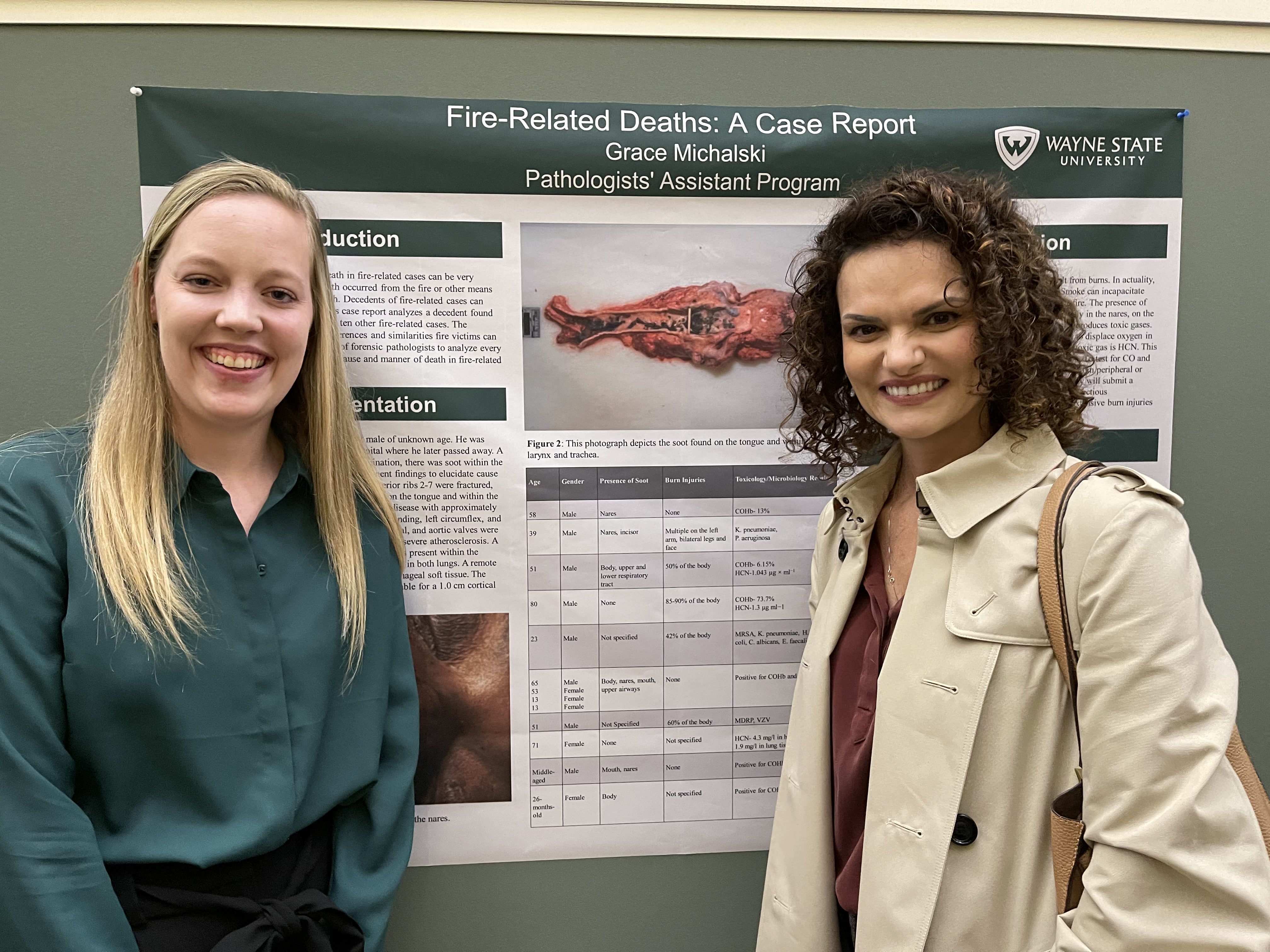
The couple settled in Michigan, where Kramer earned her bachelor’s in Spanish education and master’s in education. After teaching Spanish and English as a second language in a private high school for a few years, she decided to switch gears and pursue another master’s, this time in nutrition. Early in anatomy class, Kramer’s instructor announced that the top two students would be rewarded with a hands-on shadowing opportunity at the Wayne County Medical Examiner’s Office.
“We had just completed a dissection assignment and I really enjoyed it,” Kramer said. “I dedicated myself to being at the top of the class so I could see firsthand what a medical examiner does.” She succeeded, and was so intrigued by what she observed during shadowing that she began volunteering as an autopsy tech and collecting data for research.
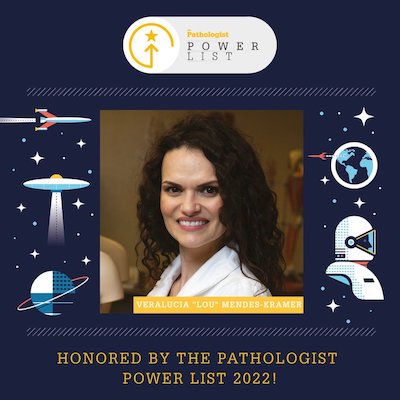
Kramer quickly realized this is where she was meant to be. While becoming a pathologist didn’t appeal to her because of the time commitment medical school would require, Kramer told her supervising pathologist she was interested in applying to Wayne State’s two-year Pathologists’ Assistant (PAA) program so she could dedicate herself to forensics full-time.
He advised against it. “This doctor told me that pathologists’ assistants do not work in forensics, and that I needed a physician assistant degree if I wanted to work there,” Kramer recalled. “He made it very clear.”
Kramer dutifully followed his directive and spent a few semesters in a physician assistant program before determining it was not for her. “I went back to my original plan of becoming a forensic pathologists’ assistant,” she said. “I didn’t care if I had to break down barriers — I’d just be the first. I decided I’d pave my own way.”
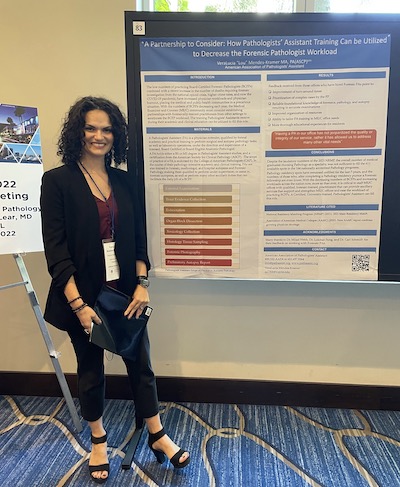
She did, and others followed. Now 2% of pathologists’ assistants are hired to perform forensic autopsy work, where once there were none. And that number continues to grow.
Sharp focus
Kramer’s students are grateful for their program director’s perseverance. “She advocates for our profession at conferences and works to establish pathologists’ assistants as essential to the forensic sector,” said Class of 2024 student Olivia Harkins. “Not many PAA programs have a class so detailed in forensics like we do. This encourages our interests in both surgical and forensic pathology, and gives us a unique edge going into the workforce. Professor Kramer has taken her passion for the forensic pathway and paved the way for her students to follow that same passion.”
That wasn’t Kramer’s original intention — she enrolled in the program to do the job herself, not teach others how to do it. But as she approached graduation in 2014, Dr. Peter Frade, who was the pathologists’ assistant program director at the time and knew Kramer had experience at the head of the classroom, recruited her to teach anatomy to first-year students. That course led to another, “and all of a sudden I was teaching anatomy to other programs in the college like physical therapy and nurse anesthesia,” Kramer said. When Frade was promoted to associate dean for health sciences in 2016, he handpicked Kramer to fill the job he was leaving behind.
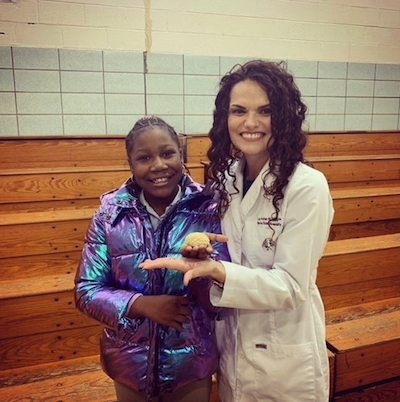
Eight years into leading one of just 15 accredited pathologists’ assistant programs in North America, Kramer is laser focused on providing an exemplary experience for the dozen or so students who make it through the highly competitive admissions process each year. The first half of the WSU Applebaum two-year master’s program is fully didactic, with comprehensive coursework in anatomy, pathology and more, coupled with extensive laboratory exposure in grossing methodology, histochemistry and autopsy techniques. The second half is dedicated to full-time clinical rotations through a broad spectrum of environments in Michigan and out of state.
Kramer makes sure her students have a robust selection of clinical sites by forging strong connections in the industry. She keeps a high profile through active involvement in several state and national organizations, and has chaired the American Association of Pathologists’ Assistants Forensic Task Force since 2019. Last year, the AAPA’s Pathologist magazine named Kramer to its Power List, praising her pioneer spirit.
Kramer also conducts and publishes research on everything from self-inflicted gunshot wounds to interprofessional education, often collaborating with her students and colleagues at Wayne State and across the country. In 2021, she presented a poster during the National Association of Medical Examiners annual meeting on “A partnership to consider: How pathologists’ assistant training can be utilized to decrease the forensic pathologist workload.”
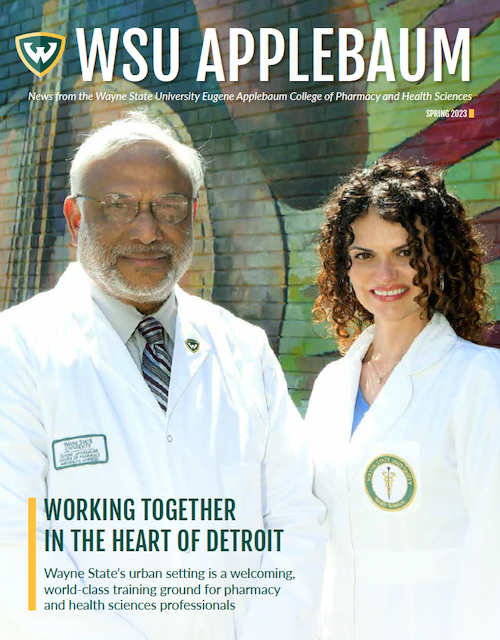
Competitive edge
Because the forensic pathologists’ assistant role is still a relatively new one, Kramer advocates for her profession and proactively educates doctors about why they shouldn’t feel threatened by her graduates. “One thing I point out is that in the 50 years our profession has existed in the surgical setting, we’ve never taken over a doctor’s job,” she said. “On the contrary, we take on duties of overworked and understaffed physicians — we decrease a doctor’s workload with our analyses to make their diagnoses easier.”
Kramer notes that WSU Applebaum students are trained in both forensic and surgical techniques, rotating through several busy, high-complexity specimen sites. This not only helps students determine which specialty they prefer, it qualifies them to do either upon graduation — with the ability to switch back and forth throughout their careers.
“Wayne State alumni are the first in the nation to graduate with the forensic pathologists’ assistant title,” Kramer said. “In fact, when other schools have students who are interested in forensics, they refer those students to us.”
Kramer is proud of this achievement but isn’t about to rest on her laurels. “I’m motivated, I work hard and I don’t shy away from a challenge,” Kramer said. “I don’t like people telling me it’s never been done before. That makes me want to do it even more.”
Established in 1989, the WSU Applebaum Master of Science in Pathologists' Assistant program is one of only 13 in the United States and Canada accredited by the National Accrediting Agency for Clinical Laboratory Sciences (NAACLS) to train students in the highly specialized field of anatomic pathology. Information meetings for prospective students take place at 6 p.m. on the first Tuesday of each month. The application deadline is Jan. 15, and all prerequisite coursework must be complete by Dec. 30.
An anchor in urban health care
The Eugene Applebaum College of Pharmacy and Health Sciences is built on more than 100 years of tradition and innovation in the heart of Detroit. We have grown deep roots in our city, harnessing its powerhouse hospital systems and community service organizations as vibrant, real-world training grounds for students, with an ongoing focus on social justice in health care. And our research at all levels – from undergraduates to veteran faculty members – translates into creative solutions for healthier communities.
Wayne State University is a premier urban research institution offering approximately 350 academic programs through 13 schools and colleges to nearly 24,000 students.
